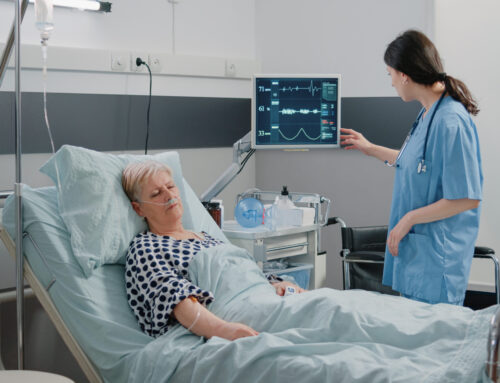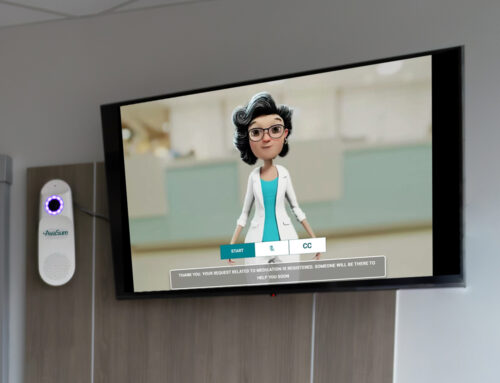The International Contrast Ultrasound Society (ICUS) today urged physicians to use ultrasound contrast agents (UCAs) to enhance conventional ultrasound images where medically appropriate, with customary protocols in place to address rare allergic reactions that may occur in one out of ten thousand doses.
“Millions of doses of ultrasound contrast agents have been safely administered worldwide for decades,” according to a statement issued Friday by ICUS, a grassroots medical society with members in 60 countries.
The Food and Drug Administration Thursday announced that UCAs (sometimes also known as “ultrasound enhancing agents”) should not be administered to patients who are sensitive to polyethylene glycol (PEG), an inactive ingredient in two UCAs approved for use in the United States and other countries throughout the world. PEG also is a component of numerous consumer and medical products.
“Based on the totality of UCA safety data now available, we conclude that UCAs have proven to be safe and beneficial for most patients and the potential for rare reactions, while serious, may be addressed with standard medical precautions,” according to the ICUS statement.
UCAs are radiation-free imaging agents that often improve a physician’s ability to detect heart disease, stratify a patient’s risk of heart attack or stroke, and help identify, characterize and stage tumors of the liver, kidney, prostate, breast and other organ systems.
UCAs present no known risk of kidney or liver damage, and are expelled from the body within minutes. In addition, patients do not require sedation during the contrast-enhanced ultrasound (CEUS) exam.
“It is clear that UCAs are extremely safe and beneficial for the overwhelming number of our patients,” said Dr. Michael Main, Vice President of ICUS and co-executive medical director of Saint Luke’s Mid America Heart Institute in Kansas City. Dr. Main is the senior author of numerous safety studies that examined the potential for adverse events associated with the use of UCAs.
According to Dr. Main, UCAs also help patients avoid unnecessary and more expensive downstream tests. “This in turn can reduce unnecessary exposure to the risks associated with alternative testing, lower overall imaging costs, speed up the patient’s diagnosis and treatment, and improve hospital workflows,” Dr. Main added.
“Contrast enhanced ultrasound, performed with an UCA, provides unique benefits for patients with tumors of their liver or kidney, providing high resolution and results that are often comparable to those obtained with more invasive imaging tests such as CT or MR scans,” according to Dr Stephanie Wilson, Co-President of ICUS and expert in the use of CEUS for general imaging. “These examinations provide a less expensive, less invasive and highly successful method of imaging all soft tissue tumors in the abdomen and pelvis.”
In its announcement Thursday, the FDA cited reports of adverse events associated with UCAs and PEG sensitivity, including two reported deaths, but information about the patients’ medical history, co-morbidities and exposures was not provided.
Three UCAs are currently used in the United States — Definity (Lantheus Medical Imaging), Lumason (Bracco) and Optison (GE Healthcare). PEG is an inactive ingredient in Definity and Lumason, and a PEG contra-indication has been added to their product labels.
“This does not seem to represent a new risk, but rather a specific type of hypersensitivity that the labels already warned against,” said Dr. Kassa Darge, Chair of the Department of Radiology at Children’s Hospital of Philadelphia and the senior author on numerous articles examining the safety and benefits of UCAs in pediatric imaging. Dr. Darge also is a member of the ICUS board of directors.
Physicians are called upon daily to evaluate potential benefits and risks of any diagnostic procedure or therapy, according to the ICUS statement. The organization encourages physicians to carefully weigh the benefits and risks of using UCAs to enhance diagnostic ultrasound exams, along with the risks associated with alternate diagnostic imaging or foregoing diagnostic imaging.
“ICUS supports the continued use of UCAs where medically appropriate as well as the FDA’s efforts to draw attention to the potential for a rare PEG reaction,” according to Dr. Steven Feinstein, Co-President of ICUS and a cardiologist at Rush University Medical Center in Chicago. He said ICUS encourages physicians to follow standard safety protocols in order to address the potential for a rare adverse event.
ICUS also announced Friday that it would host a series of webinars on UCA safety with free continuing medical education (CME) credits. For more information, please visit the ICUS website: www.ICUS-SOCIETY.org.
ABOUT ICUS:
The International Contrast Ultrasound Society (ICUS) is a grassroots, non-profit medical society dedicated to advancing the safe and appropriate use of contrast enhanced ultrasound (CEUS) to improve patient care. ICUS members include physicians, scientists, and other ultrasound imaging professionals in approximately 60 countries. For more information about ICUS, please visit www.ICUS-SOCIETY.org.












